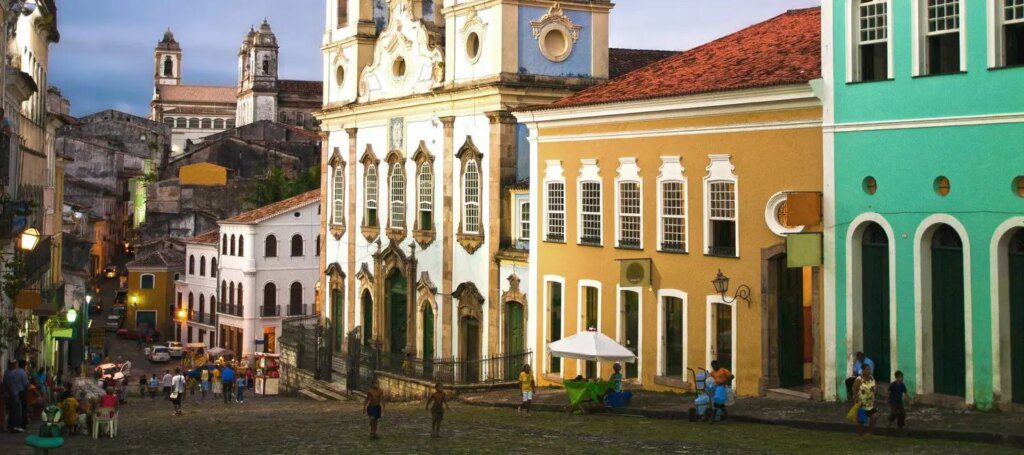Brazil is a country with a vibrant culture, reflected in its traditions like Carnaval, Capoeira, and cuisine. Carnaval is an iconic event with colorful parades and samba dancing in cities like Rio de Janeiro and Salvador. Brazilian cuisine offers unique dishes like Feijoada and Acarajé, reflecting a diverse heritage. Capoeira, a martial art, combines dance, acrobatics, and music to resist oppression and express cultural identity. With roots dating back to the 16th century, Capoeira is practiced worldwide. Exploring Brazil’s culture through Carnaval, cuisine, and Capoeira offers a captivating experience filled with energy, history, and diversity.
Unpacking the Vibrant Culture of Brazil: Carnivals, Cuisine, and Capoeira
Introduction
Brazil is a country known for its vibrant culture, with a rich history that is reflected in its traditions, festivals, cuisine, and music. From the lively celebrations of Carnaval to the unique martial art of Capoeira, there is no shortage of experiences to immerse yourself in when visiting this diverse and colorful country.
Carnivals
One of the most iconic and widely celebrated events in Brazil is Carnaval. This annual festival, held before Lent, is a time of revelry and excitement, with colorful parades, samba dancing, and elaborate costumes. The main Carnival celebrations take place in Rio de Janeiro, Salvador, and Recife, each offering a unique and unforgettable experience.
Rio de Janeiro
Rio de Janeiro is famous for its extravagant Carnival parade, where samba schools compete in a fierce competition to be crowned the winner. The parade features elaborate floats, costumes, and choreography, with music and dancing filling the streets day and night. The energy and excitement of Rio’s Carnival are truly infectious, making it a must-see event for anyone visiting Brazil.
Salvador
Salvador’s Carnival is known for its Afro-Brazilian influences, with a focus on traditional music and dance styles such as axé and samba-reggae. The streets of Salvador come alive during Carnival, with blocos (street parties) and trios elétricos (mobile sound trucks) providing non-stop entertainment for locals and visitors alike.
Cuisine
Brazilian cuisine is a melting pot of flavors and influences, with dishes that reflect the country’s diverse heritage. From feijoada, a hearty stew of black beans and pork, to acarajé, a deep-fried ball of black-eyed peas filled with shrimp and spicy sauce, there is no shortage of delicious and unique dishes to try in Brazil.
Feijoada
Feijoada is often considered Brazil’s national dish, a rich and savory stew that is typically enjoyed on weekends with family and friends. The dish is made with black beans, pork or beef, and a variety of sausages and smoked meats, resulting in a hearty and flavorful meal that is sure to satisfy your taste buds.
Acarajé
Acarajé is a popular street food in Brazil, particularly in the northeastern state of Bahia. This deep-fried delicacy is made from black-eyed peas that are mashed into a dough, then formed into balls and deep-fried until crispy. The balls are split open and filled with shrimp, spicy sauce, and other tasty toppings, creating a delicious and satisfying snack.
Capoeira
Capoeira is a unique Brazilian martial art that combines elements of dance, acrobatics, and music. Developed by enslaved Africans in Brazil during the colonial period, Capoeira served as a way to resist oppression and express cultural identity. Today, Capoeira is practiced around the world, with schools and academies offering classes for people of all ages and skill levels.
History of Capoeira
Capoeira has a rich and storied history, with roots that can be traced back to the 16th century when African slaves were brought to Brazil by Portuguese colonizers. Forced to work on plantations and in cities, slaves used Capoeira as a form of self-defense and resistance against their oppressors. Over time, Capoeira evolved into a martial art that embodied the strength, agility, and creativity of its practitioners.
Practicing Capoeira
Capoeira is a dynamic and fluid art form that requires strength, flexibility, and coordination. Practitioners of Capoeira learn a variety of kicks, sweeps, and acrobatic movements, as well as rhythmic music and singing that accompany the martial art. Whether you are a beginner or an experienced practitioner, participating in a Capoeira class or workshop is a great way to learn about Brazilian culture and history while getting a fun and challenging workout.
Conclusion
As you can see, Brazil’s vibrant culture is a feast for the senses, with a rich tapestry of traditions, festivals, cuisine, and martial arts to explore and enjoy. Whether you are dancing in the streets of Rio during Carnaval, sampling delicious dishes in Salvador, or practicing Capoeira in a local gym, you are sure to be captivated by the beauty and diversity of this remarkable country. So pack your bags, book your ticket, and get ready to experience the magic of Brazil for yourself!
